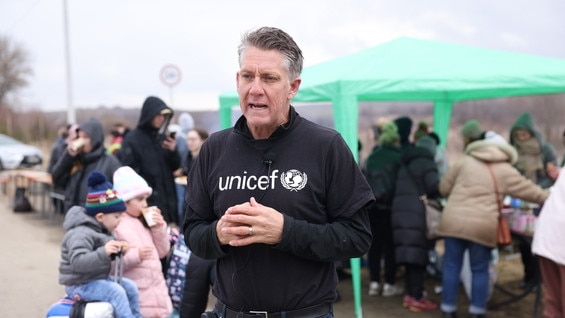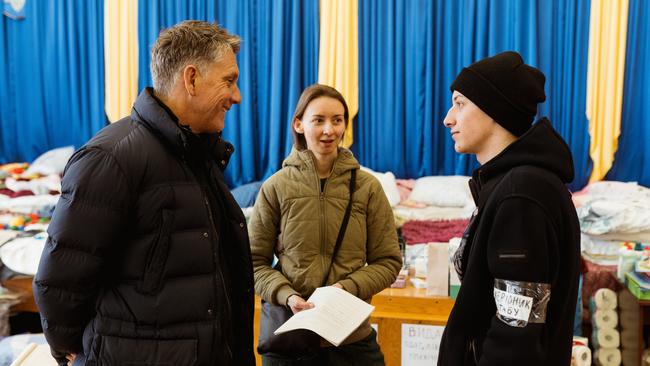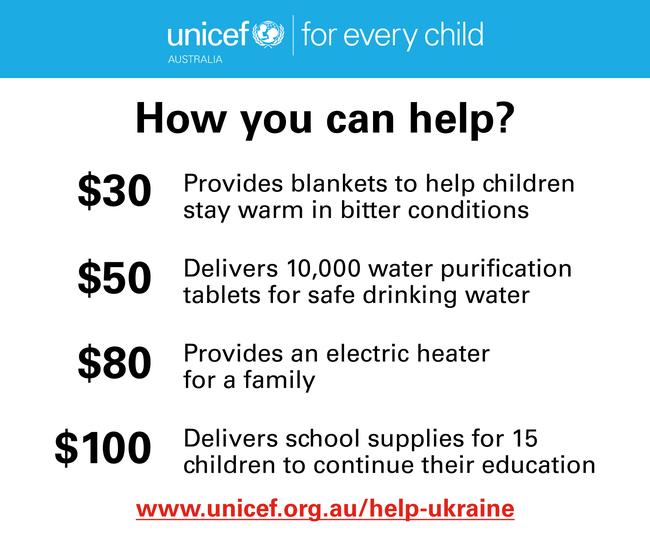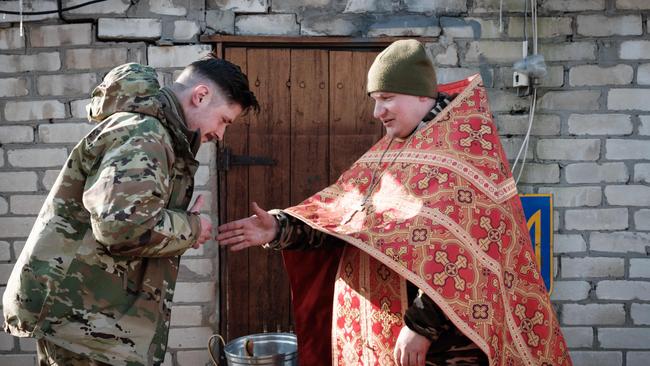Ukraine-Russia war: James Elder’s reflections one year on from conflict starting
One year on from Russia invading Ukraine, UNICEF’s James Elder explains how the invasion has brought “kindness” amid the “pain” he witnessed first-hand.
World
Don't miss out on the headlines from World. Followed categories will be added to My News.
I visited Ukraine four times last year, from the west, to the capital, to near the frontlines, and each time the emotions were raw. Uncertainty about the future, fatigue with the stress, and anger at why it was all happening.
Spread across everything was a vast sadness. An aching at its pointlessness. A revulsion at the endless attacks and child rights violations. Pain – wounds of war and invisible wounds – everywhere.
Returning this week, my first stop is to the hospital.
I go to hear from the brave medical staff, who act as both surgeons and counsellors.

Surgeons for children with horrendous wounds of war, and counsellors to those broken parents who, despite everyone’s efforts, leave hospital without their children.
I go to hear how they are coping; how UNICEF can support; and the latest situation of children.
They took me to a bright and articulate Ukrainian child. A teenage boy – his body tormented by shrapnel wounds, the result of an artillery attack as he sought to get water for his family near Bakhmut. Water. He just wanted to get some water.
He is in immense pain, but focused on the unknown whereabouts of his two sisters.
Down the corridor was a two year old girl – also from Bakhmut – paralysed after another artillery attack.
This is what war looks like. Cruel. Despairing. Bloody. And there has been a war on Ukrainian children for an entire year now.

In the very first days after the invasion it quickly became clear that every area we work on – from health to water, child protection to education – was at play.
This was a massive attack and a threat to millions of children.
Initially the approach was just get supplies in. Blankets, generators, hospital equipment. UNICEF logistics are a giant machine and when emergencies strike the scale is massive. However, sometimes, it is also get in, drop, go. Be quick and nimble.
The priority was simply to keep pushing, everywhere.
My Ukrainian colleagues were extraordinary. They worked around the clock. 16-20 hour days.
While at the same time trying to check on family members under bombardment.
Soon, I saw this spirit was not a UNICEF only thing. It was a Ukrainian thing.
The collective energy was utterly inspiring. Kindness and solidarity everywhere. Small acts. Cooking hot broth for others trapped in 30km border traffic jams, strangers giving spare rooms to fleeing families, those with money buying essentials for those without.
You kept seeing it.

When I was in the capital, Kyiv, in September, there had been a month of relative calm.
It was Father’s Day in Australia, and I was talking to dozens of dads.
They all talked to me about the possibility of their children and wives coming home. As they did, the eyes of these stoic, old- school men came alive; some cried tears of joy at the thought … at the hope to soon see their families again.

But then, not long after that, sustained attacks began again on water, power, heating.
They have made life ever more difficult and dangerous for millions of children, and they crushed the hopes of a nation of fathers to see their children and wives.
And so today, in Ukraine once again, marking the one year mark, I can’t help but cast my mind back, to the first days of war, and think of the freezing cold. The repressed tears of the mums.
The silence of the children in bunkers. And ask myself, why are we all still here?
- James Elder is UNICEF’s global spokesperson. To help visit Unicef
Read related topics:Russia & Ukraine Conflict




